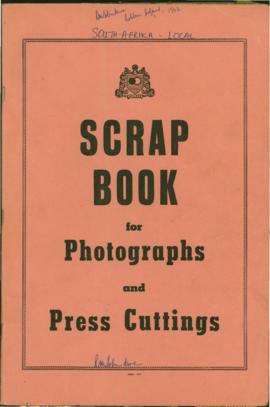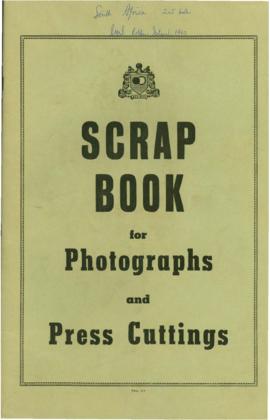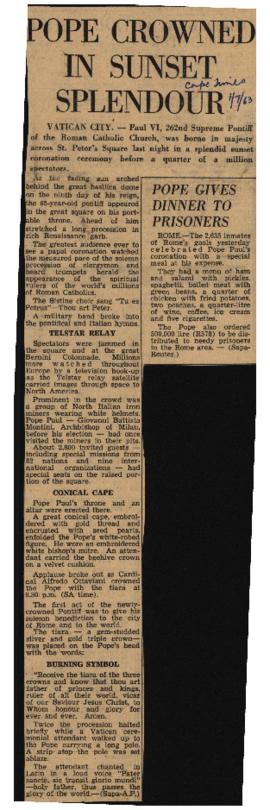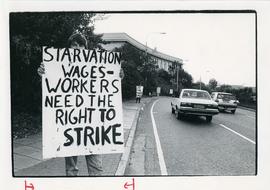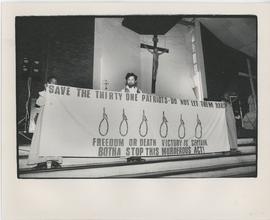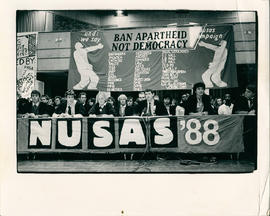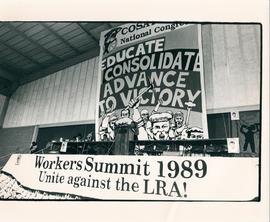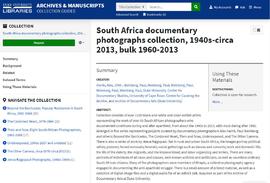- ZA RMST SCRAP-1
- Séries
- 2 May 1963 - 20 December 1963
Parte de Scrap Books from Robben Island
The scrapbook was compiled by Robert Sobukwe whilst held on Robben Island. The cover page is signed by Robert Sobukwe, together with the text 'SOUTH AFRICA - LOCAL'.
It includes news paper cuttings relating to details of Sobukwe's conditions of imprisonment on Robben Island, with reference to a parliamentary debate on the 'No Trial' Bill (later called Sobukwe Bill), as announced by B.J. Vorster, the Minister of Justice, which stipulated that Sobukwe could be detained further, after his three-year sentence expired; a photograph of the house in which Sobukwe was held, an ex-Navy barrack, out of sight of the other prisoners on Robben Island; articles and photographs about his wife Veronica and children; Kaizer Matanzima and Transkei politics; race relations in South Africa; articles relating to PAC arrests; POQO; (Potlako) Leballo letters from Basutoland, leading to the arrest of two women, Cynthia Lichaba and Patricia Lethala; NUSAS congress at the University of the Witwatersrand; Apartheid laws; arrests of ANC MK leaders at Liliesleaf farm in Rivonia; Philip Kgosana's attack on Patrick Duncan; scholarship offered to Robert Sobukwe; leadership crisis in PAC.

